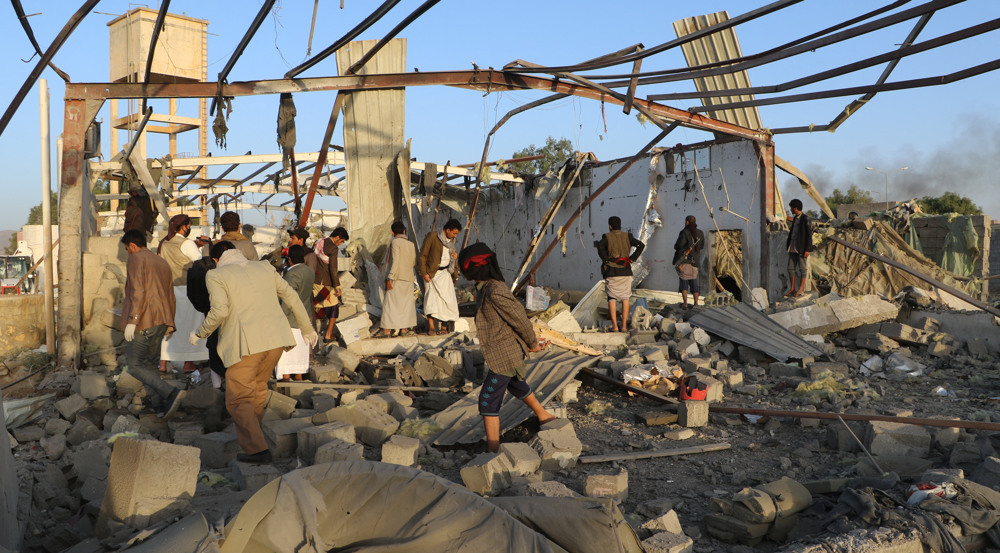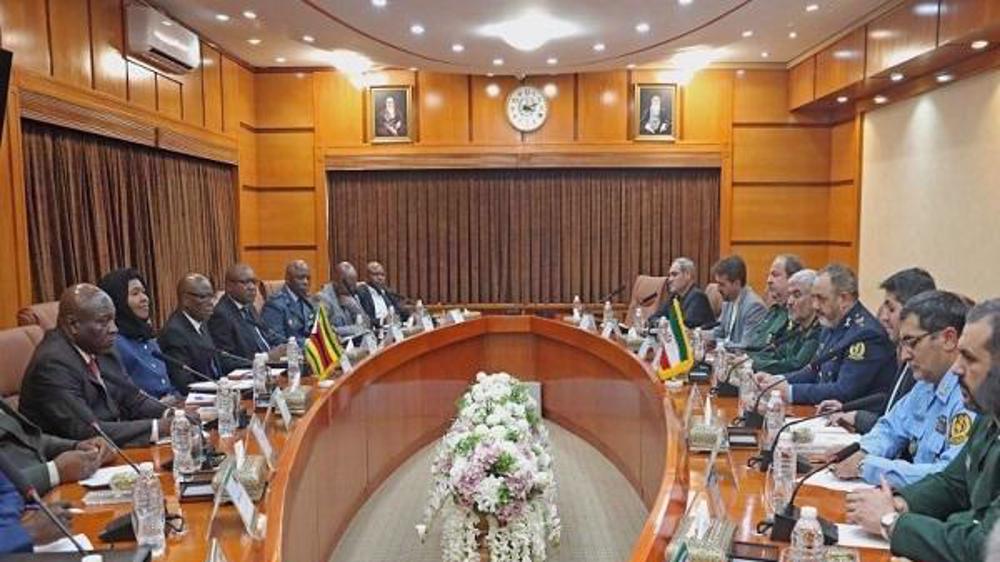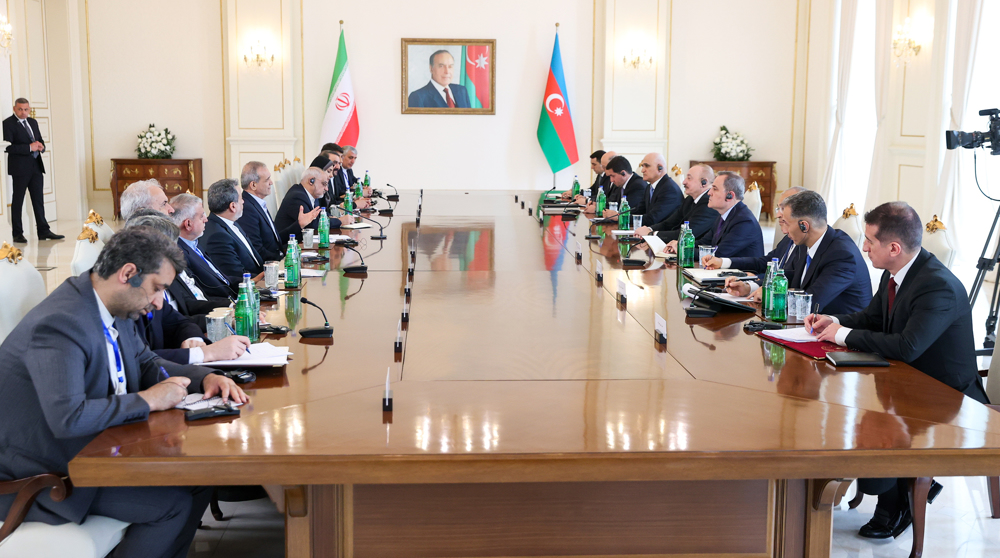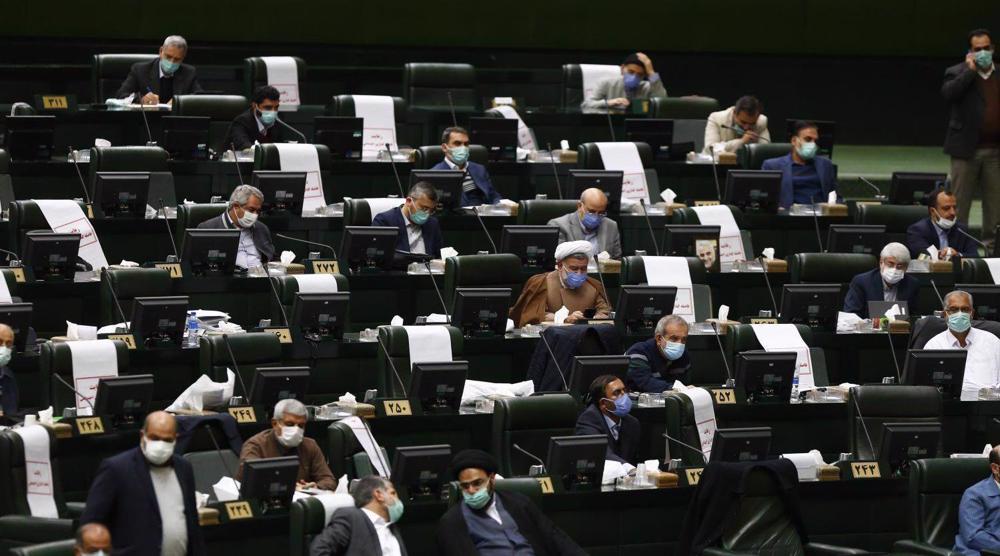Iran’s Parliament approves outlines of strategic action plan to counter sanctions
Lawmakers at Iran’s Parliament have overwhelmingly endorsed the outlines of a strategic action plan, which aims to counteract sanctions imposed on the Iranian nation and safeguard its interests.
During an open parliamentary session on Tuesday, 251 out of 260 lawmakers present voted ‘yes’ to the outlines of the draft bill, which, if adopted, will require the Iranian administration to suspend more commitments under a 2015 multilateral nuclear deal.
The details of the bill will be reviewed in a second reading.
The plan, among other things, requires the Atomic Energy Organization of Iran (AEOI) to produce at least 120 kg of 20-percent enriched uranium annually and store it inside the country within two months after the adoption of the law.
Speaking during Tuesday’s session, Abolfazl Amooei, the spokesman of the Iranian Parliament’s National Security and Foreign Policy Committee, said the plan is meant to open the locks placed on the country’s nuclear program and advance the goals of nuclear martyrs such as Mohsen Fakhrizadeh, who was assassinated by suspected Israel-tied terrorists on Friday.
“The country’s nuclear program must proceed according to the needs of our country. When the plan is approved, we expect that it (the nuclear program) will be strengthened and developed, and that this trend will accelerate,” he added.
The plan, Amooei said, also seeks to make imposing sanctions against the Iranian people a “costly” measure for Western countries.
US President Donald Trump unilaterally pulled Washington out of the 2015 nuclear deal, officially known as the Joint Comprehensive Plan of Action (JCPOA), in May 2018, and unleashed the “toughest ever” sanctions against the Islamic Republic.
Since the much-criticized exit, Washington has been attempting to prevent the remaining signatories of the JCPOA – Britain, France, China and Russia plus Germany – from abiding by their commitments and thus kill the historic agreement, which is widely viewed as a fruit of international diplomacy.
Iran remained fully compliant with the JCPOA for an entire year, waiting for the co-signatories to fulfill their end of the bargain by offsetting the impacts of American bans on the Iranian economy.
But as the European parties failed to do so, the Islamic Republic moved in May 2019 to suspend its JCPOA commitments under Articles 26 and 36 of the deal that cover Tehran’s legal rights.

Iran condemns deadly US attacks on Yemen as ‘war crime’, blasts international silence

Iran ‘fully ready’ to help Zimbabwe in its fight against terrorism: Defense minister

Pezeshkian visits Baku as Iran, Azerbaijan look to strengthen ties
Iran mulls buying oil from Azerbaijan amid warming ties: Report
Israeli settlers storm al-Aqsa Mosque amid intensified West Bank raids
Canadians take to the polls as Trump renews US takeover push
Israel uses new 'Bar' guided rockets in Gaza genocide as death toll surges
Iran condemns deadly US attacks on Yemen as ‘war crime’, blasts international silence
Hague court upholds verdict favoring Iranian banks in Bahrain case
VIDEO | Press TV's news headlines
VIDEO | Laughter under rubble: Palestinians turn displacement into defiance








 This makes it easy to access the Press TV website
This makes it easy to access the Press TV website